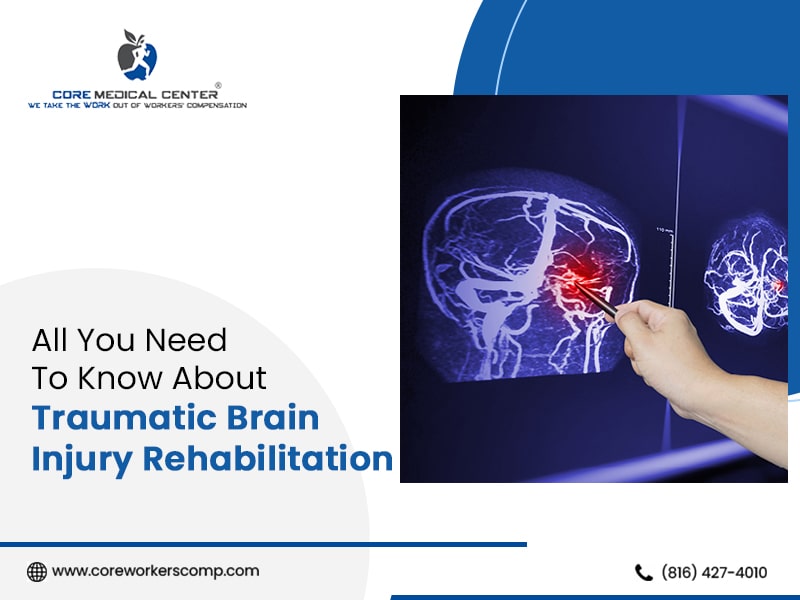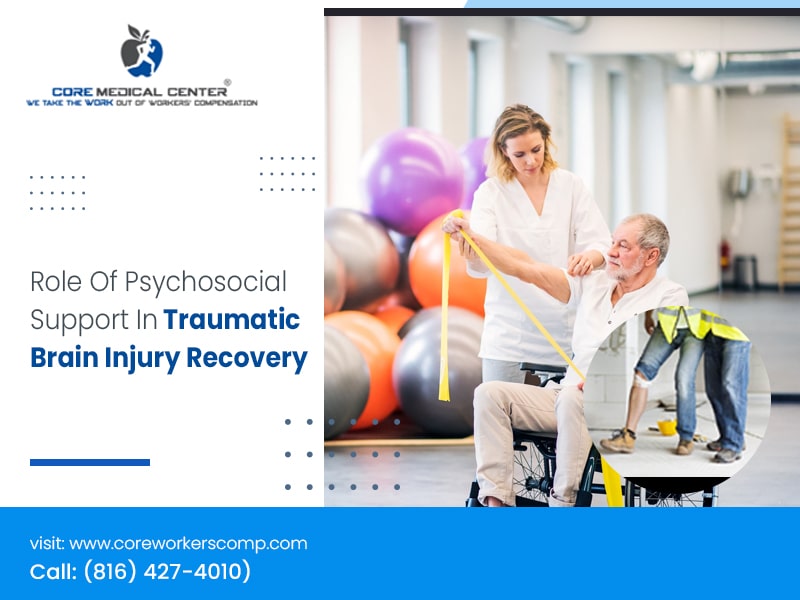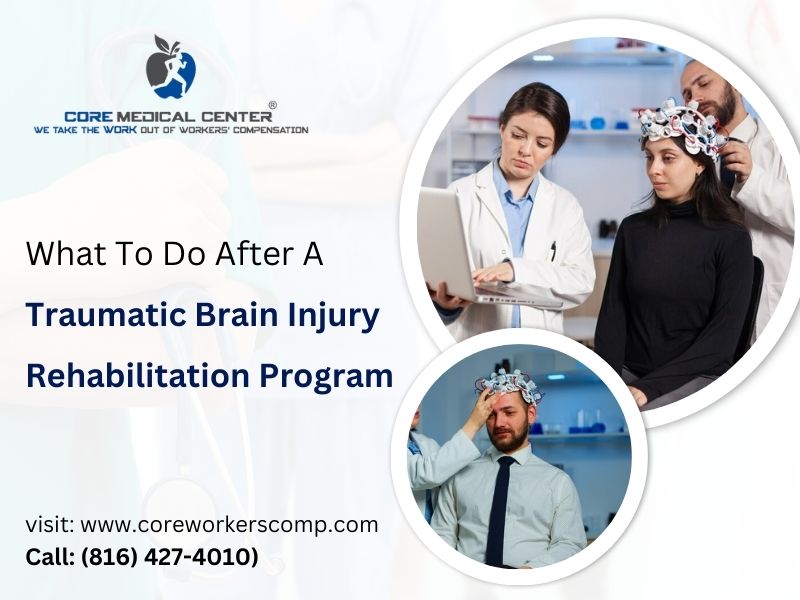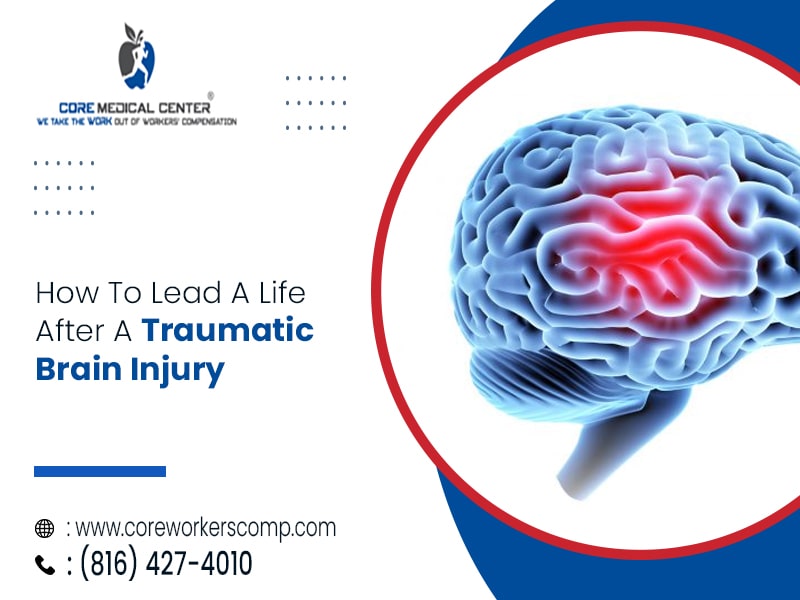An individual’s life can be profoundly and permanently impacted by a traumatic brain injury (TBI). Regardless of the cause—accidents falls, or other traumatic events—the road to recovery frequently entails a thorough rehabilitation procedure. We’ll explore the fundamentals of traumatic brain injury rehabilitation in this blog article, emphasizing the value of early intervention, the need for a multidisciplinary approach, and the function of support networks. If you have encountered any workplace or accident injury, Core Medical Center is here to provide you with Traumatic Brain Injury Rehabilitation and Psychosocial Support. Our skilled team can help you detect and recover from your injury.
Let’s get into the topic:-
- Early Intervention is Key
- Multidisciplinary Method
- Having Reasonable Objectives
- Emphasis on Cognitive Rehabilitation
- Community Reintegration and Support Systems
Early Intervention is Key:
Early intervention is one of the most important aspects of TBI rehabilitation. The initial months following the injury are critical for the rehabilitation process. Early intervention seeks to improve healing, reduce secondary harm, and encourage brain plasticity. Physiotherapists, occupational therapists, and speech therapists are among the rehabilitation specialists who collaborate to create customized intervention plans suited to each patient’s individual needs.
Multidisciplinary Method:
A multidisciplinary strategy, including many healthcare providers, is necessary for effective TBI rehabilitation to handle the different challenges that patients may encounter. While occupational therapists assist patients in regaining independence in daily activities, physical therapists concentrate on enhancing motor skills, coordination, and balance. When it comes to treating communication disorders and cognitive difficulties, including memory and focus problems, speech therapists are invaluable.
Neuropsychologists also contribute by evaluating cognitive function and creating plans for handling behavioral and emotional shifts. Social workers play a pivotal role in supporting the social and emotional components of rehabilitation by guiding patients and their families through the range of complex emotions that frequently accompany the healing process following a traumatic brain injury.
Having Reasonable Objectives:
One of the most important aspects of Traumatic Brain Injury Rehabilitation therapy is setting reasonable and doable goals. To create short- and long-term goals, the rehabilitation team works with the person and their family. These objectives are customized to each person’s particular situation, considering things like the degree of the injury, pre-injury capacities, and the person’s ambitions.
Emphasis on Cognitive Rehabilitation:
Recovering from a traumatic brain injury requires cognitive rehabilitation, which addresses memory, attention, and executive functioning problems. To enhance cognitive abilities and give people back control over their daily lives, cognitive workouts, compensating techniques, and adaptive technologies are used. Therapists collaborate closely with patients to create customized plans that improve cognitive performance.
Community Reintegration and Support Systems:
Recovery emphasizes community reintegration as a critical component of TBI therapy, extending beyond the therapeutic context. Support networks, like friends, family, and support groups, are essential for offering motivation and emotional support during the phase. Social workers work with clients and their families to find local resources, job training programs, and other assistance that help them successfully reintegrate into society.
Conclusion
Rehabilitation from traumatic brain injury is a complicated process with many facets that call for a customized, all-encompassing strategy. Early intervention, a multidisciplinary team, realistic goal-setting, a focus on cognitive rehabilitation, and robust support networks facilitate a efficient recovery process. It is hoped that as long as research and development continue, those who suffer from TBI will be able to recover with better results and a higher quality of life. If you have encountered any workplace or accident injury, Core Medical Center can offer you with Traumatic Brain Injury Rehabilitation and Psychosocial Support. Our skilled team can help you detect and recover from your injury.





Recent Comments